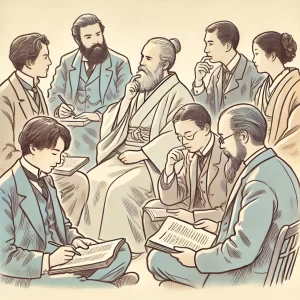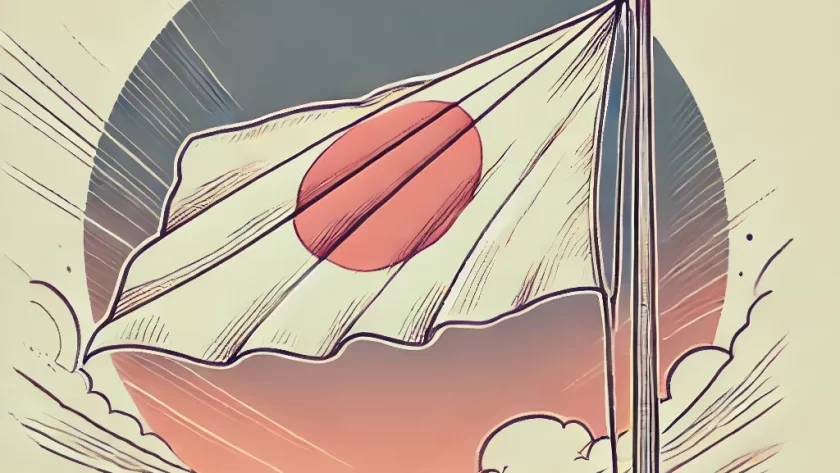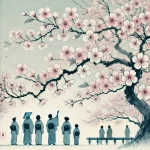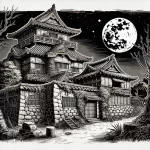君が代 [Kimigayo]
Words : 古歌 [Ancient Poetry]
Music : 林廣守・奥好義 [HAYASHI Hiromori, OKU Yoshiisa]
“Kimigayo” is Japan’s national anthem. While it feels a bit daunting to explain a national anthem, there is no doubt that this song is internationally renowned, so let’s introduce it here.
The lyrics of this song are taken from a “和歌 / waka,” a type of Japanese poem, created in the early 10th century. It is said to have the oldest lyrics among national anthems in the world.
“Waka” means “Japanese song”, and while it is poetry, it was also traditionally sung. The lyrics, which I will explain later, hold celebratory meaning, and this waka has been used in various contexts, such as in plays and ceremonies, for many years. In that sense, it was already a “song” before it became the national anthem.
When Japan was modernizing and needed to create a national anthem, this waka was chosen for the lyrics. The melody was newly composed in 1880 by musicians of the “gagaku wiki” tradition, which is Japan’s classical court music that has been passed down for centuries. Notably, well-known traditional folk songs like “Sakura Sakura” and “Usagi” also trace their musical origins to gagaku. Franz Eckert, a German musician, then arranged “Kimigayo” by adding Western harmonies, resulting in the version that is commonly performed today.

君が代よは
kimigayo yo wa
千代に八千代に
chiyo ni yachiyo ni
細石の
sazare ishi no
巌となりて
iwao to narite
苔の生すまで
koke no musu made
- 君(きみ) [kimi] : you ,lord
- 代(よ) [yo] : period, lifetime
(translation) “May your reign
continue for a thousand, eight thousand generations,
until the tiny pebbles grow into massive boulders,
lush with moss.”
Here is a translation by British Japanologist Basil Hall Chamberlain:
“Thousands of years of happy reign be thine;
Rule on, my lord, till what are pebbles now,
by age united to mighty rocks shall grow,
whose venerable sides the moss doth line.”
“君が代 / kimigayo” essentially means “your time” or “your era,” and the meaning can shift depending on the context.
“君 / kimi” is a word that frequently appears on this site, and here it means “you.” However, the nuance changes over time. In modern times, “kimi” is used to refer to someone of equal or slightly lower status, “you.” However, in the past, it referred to one’s lord or a person of higher rank whom one served.
Before becoming the national anthem, this waka was a celebration of long life, but after it became the anthem, it evolved into a song celebrating the emperor’s reign.
You can listen to an instrumental version of the anthem here. The melody is based on the ritsu scale, a traditional Japanese musical scale. It’s quite unique and interesting. At the same time, the arrangement incorporates Western harmonies. It’s particularly fascinating that the beginning and end of the anthem are performed without harmonization.
Thanks for reading! Feel free to comment if you have any feedback or questions.
Follow me on X.




GW